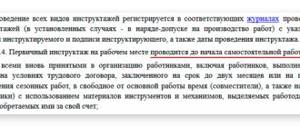For women with children under 14 years of age, the issue of part-time work is relevant. Mothers often cannot fully fulfill their responsibilities if they have to care for a child and relatives do not help. When settling down or returning to work, they wonder whether it will be possible to reduce the length of the working day. In the Labor Code of the Russian Federation you can find that women with children under the age of fourteen are entitled to benefits. Let's look at what a working mother can expect.
Shortened working hours for women with children under 3 years of age
All employers - individuals and legal entities, regardless of their organizational and legal forms and forms of ownership are required to provide guarantees and benefits established by current legislation to employees caring for small children. In this article we will look at the features of labor relations with persons combining work and caring for children under three years of age.
For women who have children under three years of age and work in institutions and organizations financed from the budget, working hours are set to no more than thirty-five hours per week.
Which pregnant women are entitled to the benefit?
Any pregnant employee has the right to have a shift or working day reduced, regardless of the stage of pregnancy. Therefore, you can receive such a benefit both early and late.
But at an early stage, mandatory medical confirmation of the employee’s status is required. At a later stage, the woman’s condition is obvious, but a certificate from a medical institution will also have to be provided (these are the rules). A woman has the right to refuse a reduction in working hours. Employers do not have the right to insist on changing the work schedule.
If a woman wants, she continues to work 40 hours a week until the very moment of giving birth.
It should be noted that the employee is not required to confirm that she is feeling unwell—there is no need to provide additional medical prescriptions. It is enough for her to simply indicate the fact of pregnancy. Ordinary documents from the antenatal clinic will be sufficient to confirm the request briefly stated in the application.
This is due to the special status of a woman carrying a baby. Pregnancy always puts a strain on the female body, so additional rest is simply necessary for the expectant mother without any additional conditions. And this right to rest is reserved for pregnant women at the legislative level.
Important! The general rules for reducing working hours for this category of workers apply to all employers without exception - government agencies and organizations, commercial enterprises and individual entrepreneurs.
Urgently! About reducing mother's working day
By agreement between the employee and the employer, a part-time working day (shift) or a part-time working week can be established both upon hiring and subsequently. The employer MUST establish a part-time working day (shift) or part-time working week at the request of a pregnant woman, one of the parents (guardian, trustee) with a child under the age of fourteen years (a disabled child under the age of eighteen years), as well as the person carrying out caring for a sick family member in accordance with a medical certificate issued in the manner established by federal laws and other regulatory legal acts of the Russian Federation. (as amended by Federal Law No. 90-FZ of June 30, 2006) When working part-time, the employee’s wages are paid in proportion to the time he worked or depending on the amount of work he performed. Part-time work does not entail for employees any restrictions on the duration of annual basic paid leave, calculation of length of service and other labor rights.
To establish part-time working hours, an employee for whom the employer is required by law to do this must write a corresponding application, indicating: - the desired length of working time; — type of part-time work; - the date from which the employee requests to establish part-time work. The application must be accompanied by a document confirming the basis on which the employee requires part-time work (for example, a certificate from the antenatal clinic about pregnancy, about the presence of dependents, a child’s birth certificate, a certificate from local government bodies, a housing department about family composition, a certificate of incapacity for work to care for a sick family member, a certificate confirming the fact that the child is disabled, a document confirming the appointment of a guardian, etc.). In the absence of such a document, the employer must explain to the employee the possibility of refusing to establish part-time work. This is due to the fact that the employer’s obligation arises in the presence of certain circumstances that must be confirmed. Therefore, in order to avoid controversial situations, the employer can request in writing from the employee documents confirming the right to establish part-time work. It is advisable to submit the request in two copies - one is given to the employee, and the other with the employee’s note on receipt remains with the employer.
Registration procedure
Before going to work, a young mother needs to discuss and agree on the terms of her work with the employer, for which she should write a statement (it is written in free form), in which she must indicate which mode of work is preferable for her. You can give the employee an application form or even draw it up for her, but she must sign it personally.
The application must be registered, endorsed and, on its basis, the working hours for the employee must be approved and an additional agreement must be drawn up with her to the employment contract. It must indicate the duration of such conditions, the schedule of work in part-time conditions and the procedure for remuneration - in proportion to the time worked.
Finally, an order is issued to transfer the employee to work part-time.
While on maternity leave for a child under 3 years of age, a young mother can go to work at any time. She retains her workplace.
Read more about how to apply for early leave to care for a child under 3 years of age in a separate article.
How to fill out the accounting sheet?
When filling out a time sheet, you can use several options; unified legislation does not contain:
- Codes “OZh” and “I” are indicated through a fraction (I/OZh), reflecting the number of hours worked. During the weekend, the coolant/b mark is set.
- The employee is reported on two lines: one must reflect the time he worked with the code “I”, and the other must reflect his time on parental leave with the code “OZH”.
The time sheet must also reflect the breaks allocated for feeding. To do this, you can enter the special code “KR”, entering it through a fraction in the same line where the code “I” is indicated. The number of hours for feeding should also be indicated as a fraction with the time worked.
Another option is to enter an additional line to account for these interruptions. This is necessary to correctly calculate the woman’s pay; breaks are calculated based on average earnings.
The legislation of the Russian Federation establishes that after the birth of a child, the mother or the person who actually cares for the newborn (for example, a grandmother) has the right to a number of benefits provided to him by various government agencies and the employer. These include the possibility of receiving parental leave and payment of benefits. Read our materials on how to apply for and extend maternity leave, write an application, and also find out whether it is possible to work on maternity leave and whether it is included in the length of service and insurance.
In conclusion, it is worth noting that part-time workers have almost the same rights as full-time workers. There are only differences in the provision of annual leave.
Shortened working day according to the Labor Code of the Russian Federation
At the request of the woman, breaks for feeding the child (children) are added to the break for rest and nutrition, or in aggregate form are transferred both to the beginning and to the end of the working day (work shift) with a corresponding reduction.
To date, the State Duma has already developed a bill that provides for a ban on extracurricular work and business trips for single parents. Today, this ban applies only to pregnant women and workers with young children. If the law is adopted, single mothers or fathers of minor children can count on the fact that without their written consent it will not be possible to force them to work overtime, on weekends and holidays, at night, or send them on business trips. We will monitor events.
Peculiarities of part-time work for women with children under 14 years of age
The government protects mothers from job loss during pregnancy and maternity leave. They cannot be reduced at this time, with the exception of liquidation of the organization. Even when a woman returns to duties, it is not easy to lay off her job if the children are under 14 years old.
There are restrictions regarding hazardous working conditions. Given the fact that they can have a negative impact on health, the employee should not be allowed to participate in certain types of activities. For example, it is not allowed to clean oil tanks or work underground if this involves heavy loads. You can take the place of a doctor or engineer. The full list should be found in Decree of the Government of the Russian Federation No. 162.
Is it possible to work officially while on maternity leave?
We advocate exclusively for official employment and white wages.
It doesn't matter whether you're on maternity leave or not. Therefore, we will talk about how to do everything according to the law. By the way, there is no concept of “maternity leave” in the law. It is usually understood as the totality of:
- maternity leave;
- care leave following the birth of a child for up to 1.5 years;
- further leave until the child’s 3rd birthday.
And each of these stages has its own nuances and restrictions on work. Let's see which ones.
Duration of the working day when receiving benefits for child care up to 1.5 years
Currently, in the part that does not contradict the Labor Code of the Russian Federation, the Resolution of the State Committee for Labor of the USSR, the Secretariat of the All-Union Central Council of Trade Unions dated April 29, 1980 No. 111/8-51 “On approval of the Regulations on the procedure and conditions for the employment of women with children and working part-time” is in force. . According to clause 8 of this
We recommend reading: Child Support Agreement During Divorce Sample
At the request of the woman or the persons specified in part two of this article, while on maternity leave, they can work part-time or at home while maintaining the right to receive state social insurance benefits. According to Art. 93 of the Labor Code of the Russian Federation, the employer is obliged to establish a part-time working day (shift) or a part-time working week at the request of one of the parents (guardian, trustee) who has a child under the age of fourteen years (a disabled child under the age of eighteen years), as well as the person carrying out caring for a sick family member, in accordance with a medical certificate issued in the manner established by federal laws and other regulatory legal acts of the Russian Federation. However, the Labor Code of the Russian Federation does not indicate what exactly is considered part-time, that is, by how many hours or minutes the working day must be reduced in order for it to be part-time.
Is it possible to work while on maternity leave?
A woman receives maternity leave on the basis of sick leave. It is also the basis for paying her the appropriate allowance.
Sick leave is issued at 30 weeks for a singleton pregnancy and at 28 weeks for a multiple pregnancy.
For more details, see the article “When to give sick leave for pregnancy and childbirth” .
But the expectant mother is not obliged to leave work on the first day of leave under the BiR. She can continue to work as much as she sees fit. And he will receive a salary for it. But she is not entitled to maternity benefits during her work (see FSS information letter dated October 8, 2004 No. 02-10/11-6671).
See: “Procedure for payment of maternity benefits in 2021” .
As soon as maternity leave is issued, the employee must go on vacation. She will no longer be able to work until the end of this vacation, even on a part-time basis.
Shorter work week and part-time work
In the modern economy, enterprises periodically face various problems associated with a decrease in the volume of products produced. In such situations, at the initiative of the employer, working hours are reduced, and employees are transferred to part-time or part-time work. And for some categories, the Labor Code prescribes a reduction in working hours.
Not every enterprise provides a reduced weekly norm of 36 hours. Sometimes the specifics of work require different approaches, for example, when working in shifts, summarized accounting is used. Every second week is reduced by one paid day.
Can a woman work while on maternity leave with a child under 3 years old?
Article 256 of the Labor Code of the Russian Federation guarantees employees of institutions on maternity leave the opportunity to work part-time or at home. In this case, the employee returns to the same position with the same responsibilities that are specified in her employment contract, just as when returning from any regular vacation.
Part-time work is a work mode when an employee works part time or less than a week. For example, three hours a day instead of eight or three days a week instead of five.
Labor laws do not establish maximum working hours for working mothers, but they should still have enough time to take care of the child.
According to Article 93 of the Labor Code of the Russian Federation, payment under conditions of part-time employment is made in proportion to the time worked or the volume of work performed.
How much can the working day be reduced for a woman with a child under 14 years old?
You have the right to refuse if, for example, your husband is on a shortened day for the same reason. Therefore, they will ask you for a certificate stating that your spouse works full time! Hmm, this is the first time I've heard of it. The Labor Code states that part-time work is not provided to persons with children, but specifically to women. And there is no information about the certificate anywhere. So I’ll ask for a link to the regulatory documents. We are considering the option when the mother does not work full time, but receives ALL the salary!
Why won't they hire you? I went on maternity leave, then on maternity leave, and let’s say then I express my desire to the employer that I am ready to go to work after the leave: 008. do not accept, they do not have the right and are obliged to provide a reduced working day if I ask. 020: At our work, girls acted like this. Only those who remain silent work full time and look askance at those who leave early. Here:017:
Can an employer deny a flexible work schedule to the mother of a child under 14 years of age?
I am a mother with a child under 14 years old. The working day is standardized, state. institution. The working day starts at 9:00, ends at 18:00, lunch break from 13:00 to 14:00. Due to family circumstances - the need to drop off and pick up a child from school on certain days, I wrote a memo at work asking for a flexible (sliding) schedule. On Monday and Wednesday, the working day starts at 8:00, ends at 18:00, on Tuesday, Thursday and Friday - at 10:00, ends at 18:00. Use your Friday lunch break as working time. The employer refused. Is this legal? What measures can be taken?
The question concerns the city of Irkutsk
How much can the working day be reduced for a woman with a child under 14 years old?
2. An employee who has three children under the age of 14 has applied to the employer with a request to provide one free from work. A woman who has a child under the age of three and is on leave to care for him has the unconditional right to either interrupt.
Perhaps all this is true. There are parents who let their children go for walks with both boxers and shepherds. But I wouldn’t risk it; after all, the dog might bolt. We have a boxer dog walking in our yard, Beta, a wonderful dog, but if she pulls, she won’t show up, and the German shepherd, Gina, also pulls, be healthy.
About benefits
Certain employees are provided with benefits that allow them to perform their job duties without harm to their health or lifestyle. Special conditions are established for those people who, due to circumstances, cannot work under general conditions. This includes a working woman with a child, especially one under 3 years of age.
The following benefits are provided:
- inability to engage in processing;
- the right to demand part-time work;
- Holiday to care for the child;
- advantages upon hiring and dismissal.
There may be other benefits if a woman works in hazardous conditions. This issue should be considered in more detail depending on the situation. Let's highlight the benefits that you can get if you have a child.
In what cases is a shortened working day provided?
Employers also resort to other tricks. They provide a short day without talking, but pay wages depending on the hours worked. Thus, shorter working hours have a strong impact on cash payout.
To request a reduction in working hours from your employer, you will have to collect documents confirming the reason for the transition to new working conditions. This can be medical certificates with a conclusion about pregnancy, health or disability of the child. You will also need to bring documents,
Is the working day reduced if there is a child under 3 years old?
Women with children under the age of one and a half years, if it is impossible to perform the previous job, are transferred at their request to another job with wages for the work performed, but not lower than the average earnings for the previous job until the child reaches the age of one and a half years .
Labor Code of the Russian Federation, Article 93. Part-time working time By agreement between the employee and the employer, a part-time working day (shift) or a part-time working week can be established both upon hiring and subsequently. The employer is obliged to establish a part-time working day (shift) or part-time working week at the request of a pregnant woman, one of the parents (guardian, trustee) with a child under the age of fourteen years (a disabled child under the age of eighteen years), as well as a person carrying out caring for a sick family member in accordance with a medical certificate issued in the manner established by federal laws and other regulatory legal acts of the Russian Federation. When working part-time, the employee is paid in proportion to the time he worked or depending on the amount of work he performed. Part-time work does not entail for employees any restrictions on the duration of annual basic paid leave, calculation of length of service and other labor rights.
How many hours can you work on maternity leave?
The work schedule during maternity leave is established by mutual agreement of the employee and the employer. For part-time, it can be a half-day or a half-week, or a combination of both. But if the working day is irregular - only a partial week with a full working day (Article 101 of the Labor Code of the Russian Federation). When working from home, the work schedule can be any, including reduced working hours.
Since a working mother will receive both a salary and a benefit, and the benefit is paid from the Social Insurance Fund, abuse must be avoided. Shortening the working day should objectively free up time for the baby. If it is 15–30 minutes a day or even an hour, social insurance will not reimburse the benefit.
Can an employer fire or lay off a mother who has a child under 3 years of age?
The legislation classifies as gross violations of labor duties (and, as we see, it does not matter at all whether these violations were committed accidentally, accidentally or deliberately):
- absenteeism, which means absence from the workplace without good reason throughout the entire working day (shift), regardless of its duration, as well as in the case of absence from the workplace without good reason for more than four hours in a row during the working day (shift) ). Therefore, if your working day begins at 9.00, then your failure to show up for work by 13.00 will itself be grounds for dismissal. Therefore, if you have a good reason for being absent from work (you yourself are sick, your child is sick, etc.), you must notify your employer of the fact of such a good reason and be ready to document the good reason;
- the appearance of an employee at work (at his workplace or on the territory of an organization - employer or facility where, on behalf of the employer, the employee must perform a labor function) in a state of alcohol, narcotic or other toxic intoxication. I would like to remind you that the fact of this violation cannot be recorded “in words.” An employer cannot fire an employee simply because he thought the employee was drunk. For legal dismissal on this basis, a medical examination must be carried out and the fact of intoxication must be confirmed by doctors;
- disclosure of secrets protected by law (state, commercial, official and other) that became known to the employee in connection with the performance of his job duties, including disclosure of personal data of another employee. The sufficient breadth of the concept of “trade secret” gives the employer a strong leverage over the employee;
- committing at the place of work theft (including small) of someone else's property, embezzlement, intentional destruction or damage, established by a court verdict that has entered into legal force or a resolution of a judge, body, official authorized to consider cases of administrative offenses;
- violation of labor safety requirements by an employee established by the labor safety commission or the labor safety commissioner, if this violation entailed serious consequences (work accident, accident, catastrophe) or knowingly created a real threat of such consequences;
We recommend reading: Refund of representative services in court
4) the commission of guilty actions by an employee directly servicing monetary or commodity assets, if these actions give rise to a loss of confidence in him by the employer (clause 7 of Article 81 of the Labor Code of the Russian Federation);
It is important! There are five subparagraphs in paragraph 6 of Article 81 of the Labor Code of the Russian Federation. The dismissal of a young mother for each of these subparagraphs will be completely legal. Let's see what these gross violations are that a young mother does not need to commit even once if she does not want to be fired.
LJ magazine
You cannot demand a reduced working time: Article 92. Shortened working hours A reduced working time is established: for workers under the age of sixteen - no more than 24 hours a week; for workers aged sixteen to eighteen years - no more than 35 hours per week; for employees who are disabled people of group I or II - no more than 35 hours per week; for workers engaged in work with harmful and (or) dangerous working conditions - no more than 36 hours a week in the manner established by the Government of the Russian Federation, taking into account the opinion of the Russian Tripartite Commission for the Regulation of Social and Labor Relations. The length of working time for students of educational institutions under the age of eighteen, who work during the academic year in their free time from school, cannot exceed half of the norms established by part one of this article for persons of the corresponding age. This Code and other federal laws may establish reduced working hours for other categories of workers (teaching, medical and other workers).
BUT! You have the right to demand a part-time working day/week: Article 93. Part-time working time By agreement between the employee and the employer, a part-time working day (shift) or a part-time working week can be established both upon hiring and subsequently. The employer is obliged to establish a part-time working day (shift) or part-time working week at the request of a pregnant woman, one of the parents (guardian, trustee) with a child under the age of fourteen years (a disabled child under the age of eighteen years), as well as a person carrying out caring for a sick family member in accordance with a medical certificate issued in the manner established by federal laws and other regulatory legal acts of the Russian Federation. When working part-time, the employee is paid in proportion to the time he worked or depending on the amount of work he performed. Part-time work does not entail for employees any restrictions on the duration of annual basic paid leave, calculation of length of service and other labor rights.
Half-holiday
By agreement between the employee and the owner or a body authorized by him, a part-time or part-time work week may be established both upon hiring and subsequently. At the request of a pregnant woman, a woman who has a child under fourteen years of age or a disabled child, including one who is under her care or who is caring for a sick family member in accordance with a medical report, the owner or an authority authorized by him is obliged to establish for her part-time or part-time work week.
Girls, I want to write an application for shortened working hours. There are children aged 6 and 9 years old - is this possible by law? Can I be refused? and how much can you realistically shorten the day by? 6 hour or 4 hour day? and what is the vacation in this case? was at 8 hours for 28 days
May 21, 2021 consurist 808
Share this post
- Related Posts
- Sample complaint to the labor inspectorate
- Grounds for disqualification of an expert and specialist
- Replacing a toilet is a major or current repair
- Where is the lowest mortgage interest rate?










